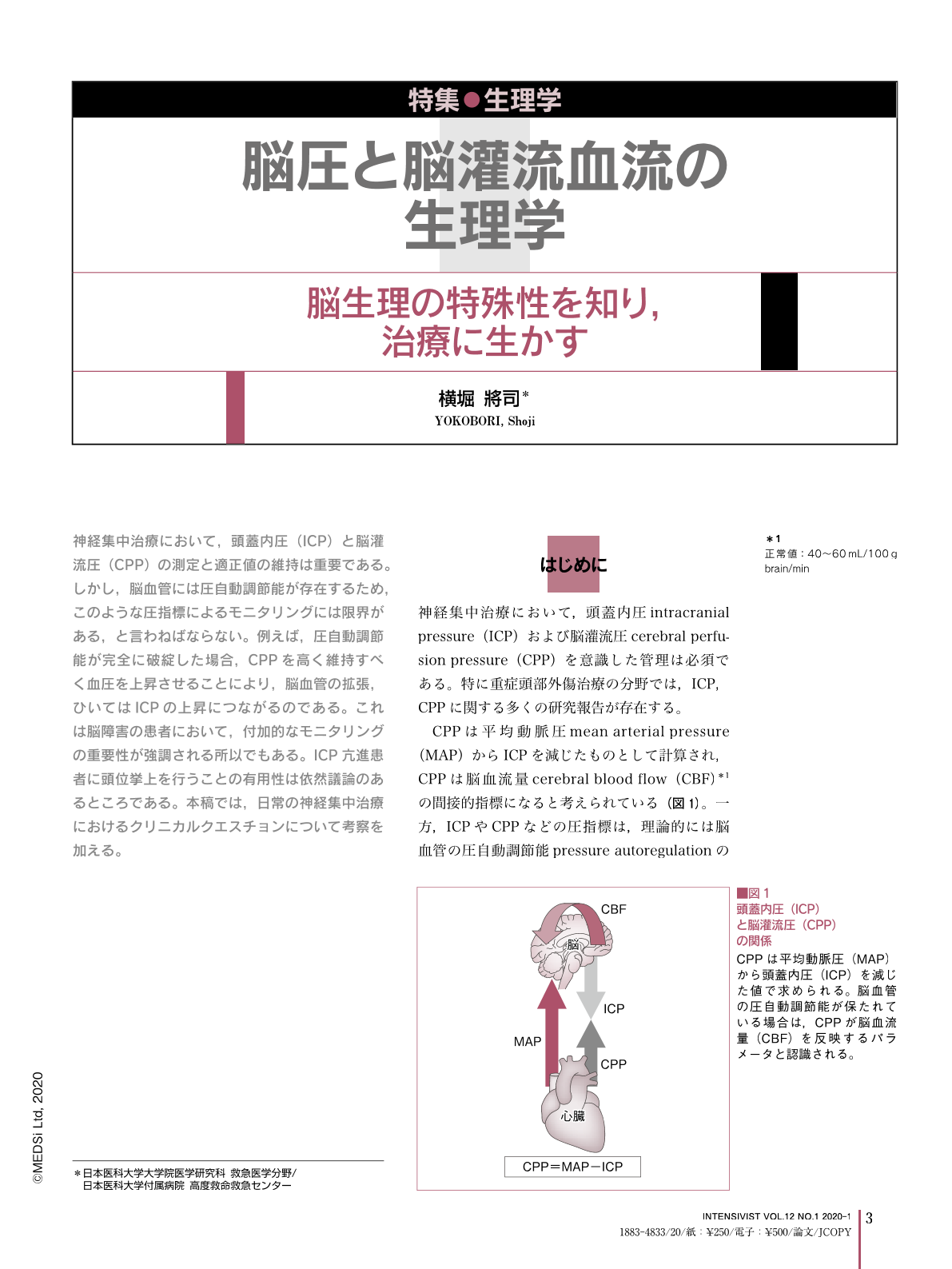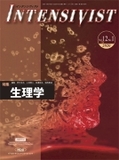Japanese
English
- 有料閲覧
- Abstract 文献概要
- 1ページ目 Look Inside
- 参考文献 Reference
神経集中治療において,頭蓋内圧(ICP)と脳灌流圧(CPP)の測定と適正値の維持は重要である。しかし,脳血管には圧自動調節能が存在するため,このような圧指標によるモニタリングには限界がある,と言わねばならない。例えば,圧自動調節能が完全に破綻した場合,CPPを高く維持すべく血圧を上昇させることにより,脳血管の拡張,ひいてはICPの上昇につながるのである。これは脳障害の患者において,付加的なモニタリングの重要性が強調される所以でもある。ICP亢進患者に頭位挙上を行うことの有用性は依然議論のあるところである。本稿では,日常の神経集中治療におけるクリニカルクエスチョンについて考察を加える。
In neuro-critical care, patient management with monitoring of intracranial pressure (ICP) and cerebral perfusion pressure (CPP) is important. However, these pressure-based parameters have limitations because of pressure dysautoregulation of cerebral vessels after a severe brain injury. For example, with completely disrupted vascular autoregulation, a higher CPP may lead to ICP elevation. Therefore, additional advanced cerebral monitoring is needed for the treatment of brain-injured patients. The importance of head position and head elevation for the treatment of patients with intracranial hypertension is still a physiologic controversy. In this chapter, pathophysiological concerns and the treatment rationale for brain-injured patients are explained, with a discussion of clinical questions in the daily management of patients in the neuro-ICU.

Copyright © 2020, MEDICAL SCIENCES INTERNATIONAL, LTD. All rights reserved.


